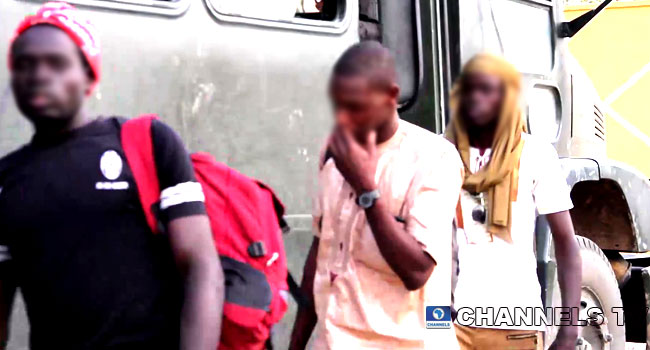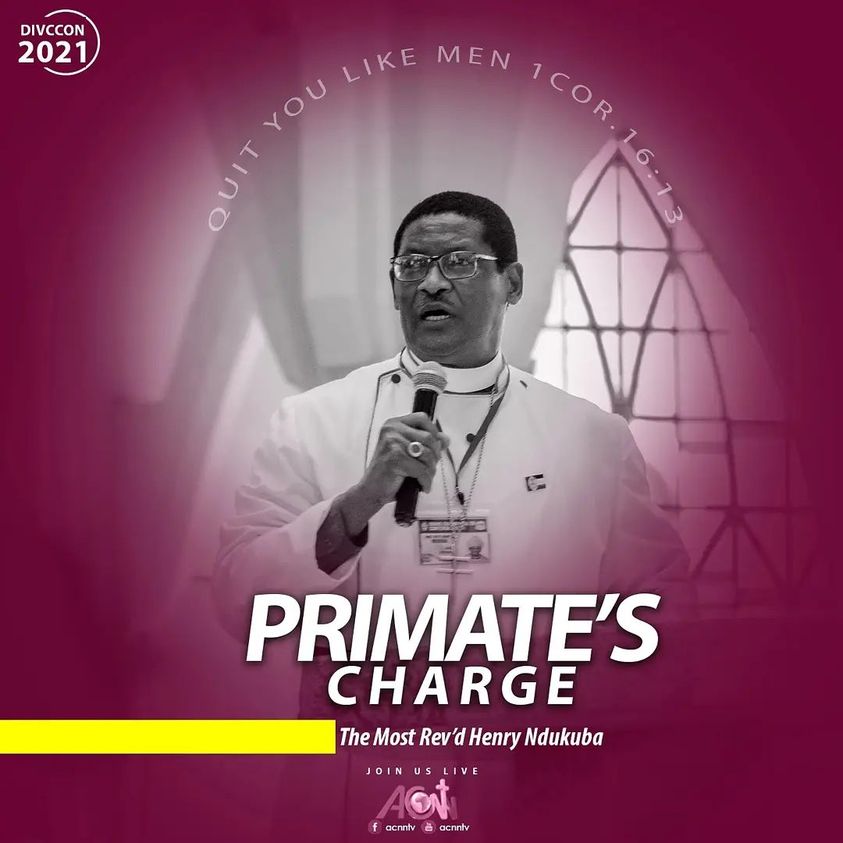Deposit Money Banks have begun to ration the disbursements of old N1,000 and N500 notes to their customers amid uncertainty over whether the Central Bank of Nigeria will release the old notes in its custody.
This came about 24 hours after the CBN Governor, Godwin Emefiele, announced that old N1,000, N500 and N200 notes remained legal tender.
But despite the CBN’s statement on Monday night, the Nigeria Labour Congress on Tuesday insisted on the seven-day ultimatum it gave the Federal Government to end the cash crunch.
The apex bank’s position came on the heels of several weeks of confusion over the legal status of the old currencies amid a series of Supreme Court judgments in a suit between some state governments and the Federal Government.
The declaration by the CBN was expected to put an end to the scarcity of old and new naira notes that had inflicted pain on Nigerians but findings by The PUNCH on Tuesday revealed that the naira crisis might not be over soon.
Investigations by our correspondents revealed that banks were rationing old notes to their customers via over-the-counter payments with a few lenders loading their Automated Teller Machines.
But media findings revealed that the majority of the lenders in Lagos, Abuja, Ogun, Kwara and other states were paying only N5,000 to each customer over the counters, while a few banks paid N10,000 only.
Further findings indicated that only a few banks loaded their ATMs and most of them were disbursing only N5,000.
Top bank executives revealed that most banks were paying what was left in their vaults, having sent a major chunk of old naira deposits to the CBN several weeks ago.
Other officials said lenders were also paying customers from little fresh deposits made by their customers.
Lagos banks
Due to the naira scarcity, Wema Bank at Ilupeju, Lagos placed a limit on its ATM withdrawals from other banks’ cards and was dispensing only old naira notes.
When the news correspondent visited the branch, the bank’s customers were able to withdraw only N10,000 with Wema Bank’s cards, while other banks’ customers could withdraw only N4,000 only.
At the Access Bank branch on CMD Ikosi Road, Lagos, customers were asked to generate a code from the CBN portal before they could be allowed to deposit.
They said this was mandatory although the CBN had declared old notes legal tender.
One of the bank officials who attended to our correspondent said, “We are paying the old notes but if you want to deposit them, you must go and generate the pin from the CBN portal.”
A visit to the First Bank branch at Mazamaza along Lagos-Badagry Expressway revealed that the bank had started dispensing the old notes via over-the-counter withdrawals.
At the Union Bank branch also in Mazamaza, the situation was the same.
The branches of United Bank for Africa, Access Bank, and Fidelity Bank at Oshodi in Lagos also dispensed old notes to their customers, though they had long queues.
At the Fidelity Bank branch, one of their three Automated Teller Machines was dispensing old N1,000 notes.
A customer, who collected the old notes from the ATM, Helen Orji, expressed relief.
She said this was the first time that she was able to collect cash from an ATM.
“It’s a major relief. PoS charges are killing. I wanted to buy baby formula on Monday, so I went to collect N5,000 and was given N4,000. It wasn’t enough for what I wanted to buy. To be able to go back to normal is a relief.”
Meanwhile, when a bus conductor plying the Mile 2-Oshodi route on Tuesday attempted to refuse the old notes, his passengers revolted and started handing him old N500 and N1,000 notes. He backed down and accepted the old notes.
Old notes
A businesswoman, Omolayo Shittu, who went to buy fabrics at Oshodi on Tuesday told our correspondent that traders had started accepting the old notes.
She said, “They are collecting the old notes and giving them out. A PoS lady, who was telling someone she had only old notes, nearly got slapped as the traders insisted that there was nothing like old money or new money.
“I have called my shop and told them to start collecting the old notes.”
On Tuesday, banks disburse old notes along the Alagbole-Akute axis, our correspondent visited three banks – First, Bank First City Monument Bank and UBA. While all three banks were disbursing the old naira notes over the counter to customers, only FCMB had loaded their Automated Teller Machines with cash.
Meanwhile, traders and supermarkets around the axis had begun to accept the old notes from customers, even though some of them still exercised caution by insisting that they would not accept any old notes until the uncertainty surrounding it dissipates in the coming days.
Transport operators in the area, on the other hand, remained firm in their rejection of the old notes.
A tricycle operator, who identified himself as Damilare, told our correspondent that many of the transport operators were still circumspect about accepting the old notes because they had yet to regain wide acceptance among the general public.
Damilare said, “It’s risky. Some people are collecting, some people are still not collecting. I don’t want to collect it because I may not be able to spend it.”
A supermarket owner, Bukola Vivian said, “I’m accepting the old notes. I believe the confusion will clear up in the next few days.”
Also, a source at Sterling Bank said, “So we are issuing out the old notes. Also, there is a limit to how much we can give out though. So we are giving out N10,000 for now over the counter and via ATM.”
Another source in United Bank for Africa also confirmed that the bank is paying out old notes.
“ Yes, we are paying out the old note already”.
Our correspondent observed that transport drivers have also begun to collect the old notes. Although some still maintained a reluctant stance.
When speaking with a bus conductor, our correspondent requested to pay with the old N1000 note but the conductor said “ if I collect it, I won’t give you change”.
A trader, who sells goods at Ibafo and spoke on condition of anonymity, told The PUNCH, “I am collecting the old notes and I still spent it for a bus driver from Mowe. Anyone that does not collect old notes is breaking the law as ordered by the CBN. Even if drivers don’t collect it, the fuel stations are accepting old notes now.”
Our correspondents who monitored the situation in banks in the Federal Capital Territory observed partial compliance with the central bank’s directive.
The banks complained of naira scarcity due to zero supply of the new and old notes from the regulator.
The press reports that traders, market women and taxi drivers were still unsure of whether the notes are now legal tender.
A branch of the United Bank for Africa in Gwarimpa dispensed the old notes over the counter but its Automated Teller Machines were not loaded with cash.
A bank official explained that the bank accepted the old naira notes only from customers who presented the forms generated from the CBN portal for the return of old currencies.
“Dispensing? Yes, in the bank. Accepting your evidence from the CBN portal. The ATMs would probably be later, but for today, we didn’t load the machines,’’ she disclosed.
Out of the 12 banking halls and ATM stands visited by our correspondent Wuse 2 and Wuse Zone 4, only one bank was disbursing old naira notes to its customers.
At Access Bank, customers were given N5,000 in old N1,000 notes over-the-counter while the ATMs were not dispensing cash.
But at other banks, officials claimed there was no cash, leaving many customers stranded.
An FCMB official told our correspondent that the apex bank only recognised the notes as legal tender but had not started distributing them to banks as of 1 pm when our correspondent visited.
He said, “They (CBN) only said the old notes are now legal tender but they had not been disbursed to the branch. When the money is disbursed, we will surely give it to our customers.”
Banks located within the precinct of the Federal Secretariat dispensed the old notes as directed by the CBN
A Zenith Bank official revealed that the bank was accepting and disbursing the old notes, adding that only N5,000 was given per customer.
Similarly, at Access Bank, it was also observed that cashiers were paying customers with old notes over-the-counter.
The CBN spokesman, Isa Abdulmumin, declined comment when asked if the apex bank had increased currency allocation to banks to ease the cash crunch.
The PUNCH reports that many Abuja residents, including drivers, market women and traders were sceptical about collecting the old notes even after the CBN directive.
A cab driver identified simply as Sunday declined to accept the old N500 note from a passenger, stating that fuel stations are still rejecting it.
“As a driver, I don’t work with CBN; filling stations are not collecting it so I’m not collecting it too,” he said.
However, some stores were observed accepting the old denominations from customers.
Also, a petty trader, who simply gave her name as Chioma, said she was also collecting old currency from customers.
Also, commercial banks in Ilorin, Kwara State on Tuesday commenced issuing the old N500 and N1000 to their customers in line with the CBN directive.
The news crew gathered that First Bank, UBA, FCMB and Access banks paid old notes to their customers contrary to what had been happening in the banks in the last two months.
It was gathered that each of their customers was allowed to withdraw money up to N20,000 over-the-counter but the old notes were yet to be loaded into the ATM machines.
Also, the Kwara State Governor, AbdulRahman AbdulRazaq, asked residents of the state, especially marketers, to collect and spend the old and new naira notes as both are still legal tenders in the country.
A statement by Rafiu Ajakaye, the Chief Press Secretary to the governor, said, “As per the judgment of the Supreme Court of Nigeria and the latest circular of the Central Bank of Nigeria, the old naira notes still remain a legal tender in the country.
‘’Banks are now officially issuing the old naira notes (including N500, N1000). I, therefore, urge all residents of our state to spend and receive both the old and the new naira notes.
Meanwhile, the NLC has reiterated its resolve to direct workers to stay away from the office if the Federal Government failed to address the cash scarcity and fuel shortage in the country.
The congress stated this in a communiqué issued on Tuesday after the inaugural meeting of its Central Working Committee in Abuja on Monday.
The NLC President, Joe Ajaero, had on Monday, told labour correspondents at the opening session of the meeting that the union would direct workers to stay at home if the Federal Government failed to resolve the cash crunch and fuel scarcity within seven days.
But a few hours after the NLC gave the ultimatum, the CBN which had shunned the Supreme Court judgment on the new naira notes, directed banks to accept and dispense the old denominations.
Notwithstanding the new development, the congress in a statement on Tuesday said it might compel its members to withdraw their services if the government failed to make cash available within seven days.
The communiqué signed by Ajaero read, “In the period under review, three major issues have engaged the attention of the nation. They are presidential and national assembly elections; scarcity of PMS (petrol) and redesigning of the naira notes and its aftermath.
“The CWC noted that elections have been held and we have made our broad observations in an earlier statement. It reiterated its earlier statement that those with issues with the outcome of the election utilise the court to seek redress.
The union accused the state of refusing to implement previous agreements reached between the state government and trade unions since 2021; 20 months’ salary arrears owed to some workers stigmatised as ghost workers; declaration of 11,000 workers in the state as ghost workers and diversion of their salaries and vandalisation of congress office and equipment by hoodlums allegedly recruited by the state government, among other allegations.
In a subsequent statement, the union said it had shelved the planned strike action in Imo State following the intervention of some individuals, adding that the suspension would last for two weeks during which the state government was expected to meet up with the demands of workers in the state.
Punch









